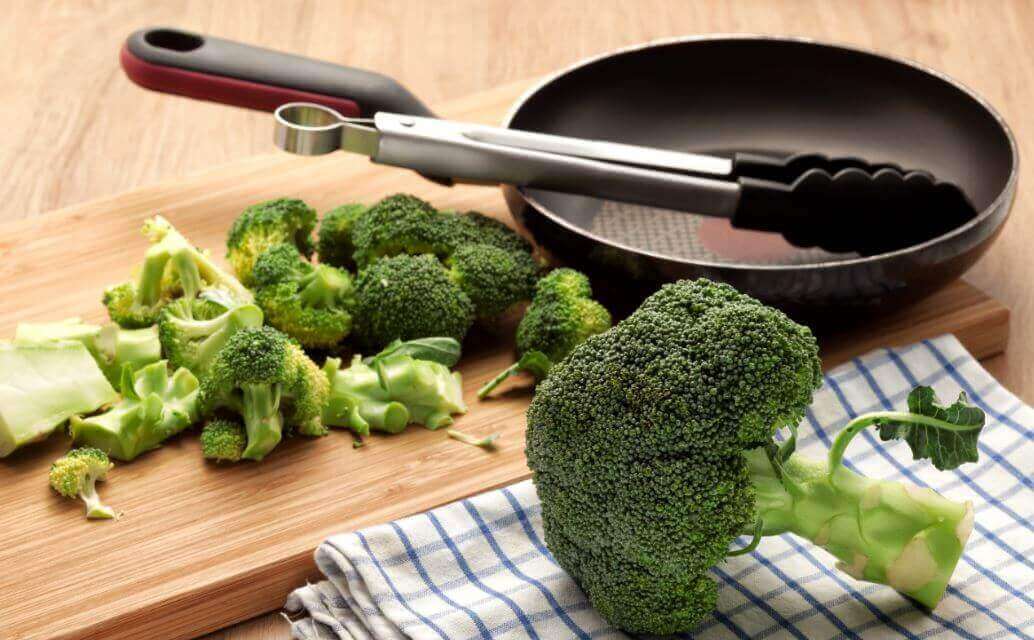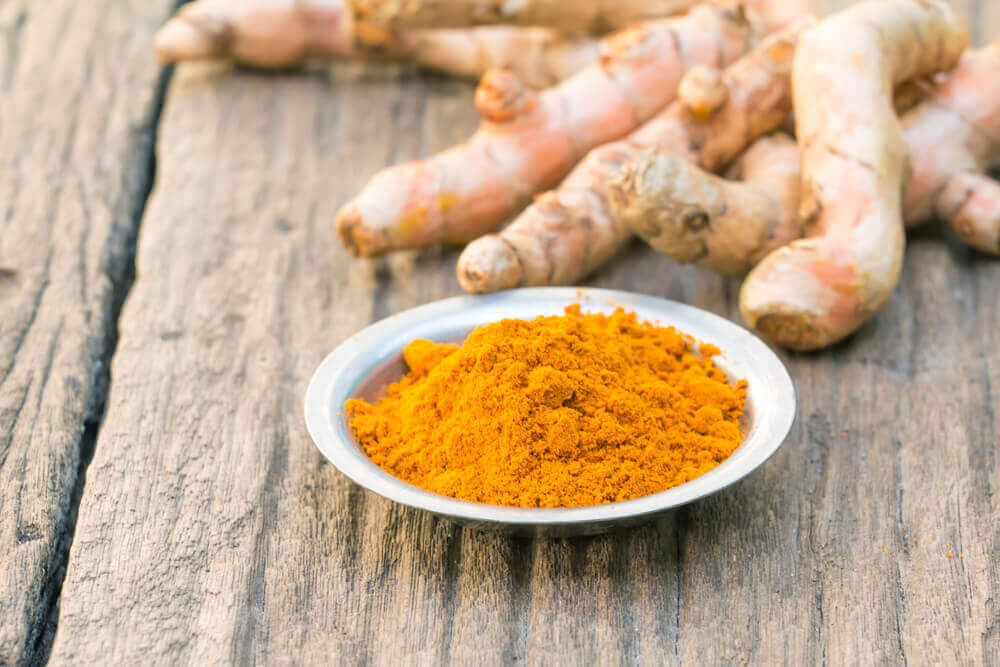Foods Against Lung Inflammation


Written and verified by the nutritionist Saúl Sánchez Arias
Do you know which foods help against lung inflammation? Although many don’t seem to know about them, there are a number of foods that have the ability to improve the symptoms of lung infections and, in turn, have a positive effect against inflammation.
For this reason, it’s a good idea to consume them, along with the appropriate pharmacological treatment, to alleviate the symptoms and improve the prognosis in these types of cases. We don’t want to reduce the variety of your diet. However, it’s positive to emphasize the intake of these products for the duration of the problem.
What are the foods against lung inflammation?
Foods against lung inflammation don’t have curative effects or anything of the sort. However, due to their properties, they can be effective against inflammatory processes affecting these organs, especially in cases of infection. Let’s see the most recommended ones.
Cruciferous vegetables
Cauliflower, and especially broccoli, have the ability to reduce inflammatory markers according to scientific literature. For this reason, they’re more than highly recommended when we talk about pulmonary involvement.
In their composition, they have substances called sulforaphane that have this ability, and, in addition, they contain vitamin C. This vitamin is being studied for its possible capacity to modulate the immune response, although to date there are no conclusive results.

Garlic
Another beneficial food when it comes to helping to treat this type of ailments is garlic. Both its common varieties, as well as the black or aged ones, have antioxidants that can help to reduce inflammation.
This is supported by randomized, double-blind, placebo-controlled scientific studies. For this reason, the use of this product is suggested in situations of this nature.
Among other things, garlic is a versatile ingredient that can be included in many recipes, improving their organoleptic properties.
However, if what we want is to benefit from its antibacterial and anti-inflammatory properties, specialists recommend consuming an aged garlic extract.
Discover more: Tips and Recommendations to Freeze Broccoli
Turmeric helps against inflammation
Spices, in general, often have excellent properties for human health. In addition, they contain antioxidants that are beneficial for the development of organic functions. However, among all the varieties, there’s one that stands out for its anti-inflammatory capacity: turmeric.
Scientific literature reflects its possible use in lung diseases. Its properties are based on a substance known as curcumin, which is nothing more than a yellow pigment that can modulate inflammation.
Such is the effect it has shown in research that it’s beginning to be studied in the sports population to reduce recovery times from injury or to reduce the likelihood of muscle rupture.

Diet against lung inflammation: a preventive measure
In any case, the best idea is to opt for a diet focused on the prevention of this type of health issue. Based on this premise, the recommendation is to increase the consumption of fresh products and reduce the consumption of processed products.
A basic aspect in the prevention of diseases and in the modulation of the immune response is the care of the microbiota. This acts as one of the first defensive barriers of the organism.
To stimulate its selective growth we shouldn’t neglect the consumption of yogurts, fermented milk and fiber. This way, we’ll enjoy a healthy microbiota and improve our immune function.
On the other hand, we must emphasize the importance of the consumption of fruits and vegetables in general. These foods contain antioxidant compounds that are essential for the fight against free radicals and the correct functioning of the body.
Lastly, we must reduce the consumption of alcohol and toxic substances. These can alter our body’s physiological reactions, making it more prone to disease.
Also read: Lung Transplant: Everything You Need to Know
Things to keep in mind!
There are foods that can improve the symptoms of lung infections when we consume them. Their intake is indicated in this type of health issue, together with the corresponding pharmacological treatment.
However, a varied, healthy, and balanced diet will allow us to enjoy a better state of health. These habits will increase our defenses against pathogenic organisms.
Regular exercise is another factor that can be fundamental in reducing the possibility of getting sick, both in the short and long term.
In addition, specialists strongly recommend giving up toxic habits and processed food. The latter has an inflammatory character due to its high content of omega-6 fatty acids and sugars, which could cancel out the effects of the aforementioned foods.
All cited sources were thoroughly reviewed by our team to ensure their quality, reliability, currency, and validity. The bibliography of this article was considered reliable and of academic or scientific accuracy.
- Medina S., Dominguez Perles R., Moreno DA., García Viguera C., et al., The intake of broccoli sprouts modulates the inflammatory and vascular prostanoids but not the oxidative stress related isoprostanes in healthy humans. Food Chem, 2015. 173: 1187-94.
- Xu C., Mathews AE., Rodrigues C., Eudy BJ., Rowe CA., et al., Aged garlic extract supplementation modifies inflammation and immunity of adults with obesity: a randomized, double blind, placebo controlled clinical trial.
- Lelli D., Sahebkar A., Johnston TP., Pedone C., Curcumin use in pulmonary diseases: state of the art and future perspectives. Pharmacol Res, 2017. 115: 133-148.
This text is provided for informational purposes only and does not replace consultation with a professional. If in doubt, consult your specialist.








